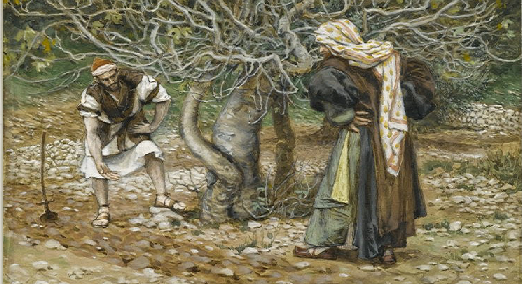Lord, help me to foster unity, through humility, patience and gentleness.
29th Week in Ordinary Time (B) : Saturday, 26th October 2024
Eph 4:7-16; Ps 121:1-5;
Lk 13:1-9 (Ps Wk II)
‘Rabbi, who sinned, this man or his parents, that he was born blind?’ (John 9:2), is a question that seeks a scapegoat. In Israel’s mind, sin and suffering were closely related. Jesus uses two horrific events to illustrate why his listeners should not judge the victims’ sinfulness as the cause of the tragedies. Highlighting the real issue, Jesus uses the parable of the fig tree to change their perception and understanding. Tragedies are providential invitations for a continuing conversion, especially when accompanied with an examination of their own lives and relationship to, and with God, and then, responding with repentance for one’s sins. God permits evil only to draw out a greater good.
The fig tree is a symbolic image of God’s people, and that includes us. A fruitful one shows fidelity to God, and “if we live by the truth and in love, we shall grow in all ways into Christ…” (Eph 4:15). The result of infidelity is “you will all perish as they did, unless you repent” (Lk 13:5). This perishing is tragic since we cut ourselves off from God’ love. Repentance is inevitable. It involves a radical reorientation of our lives, to turn away from sin, and to return to God with all our hearts. Conversion comes with deep sorrow for having offended God, followed by a resolution to change our lives without delay. God is patient with us now and affords us time to repent. We should not squander this opportunity away.
Lord, grant me a contrite heart to start my life anew. Amen.

